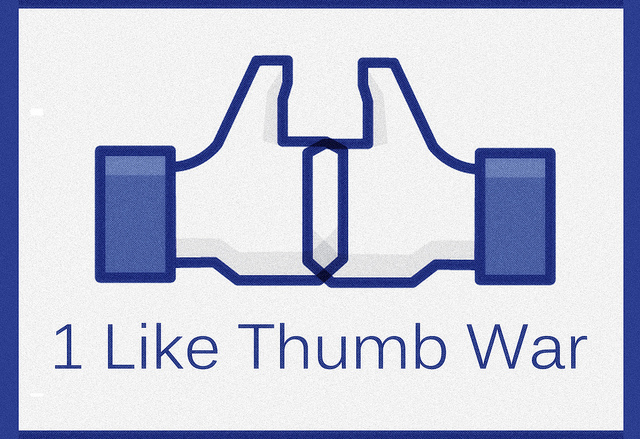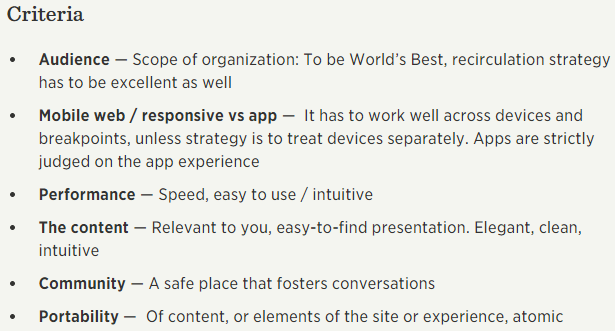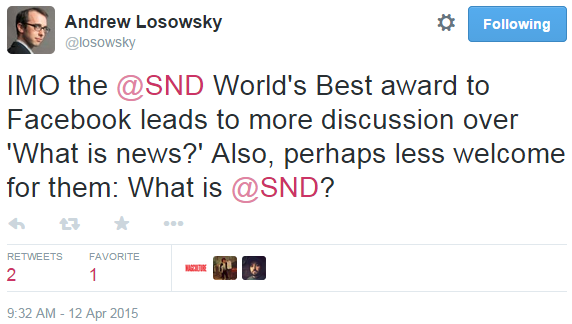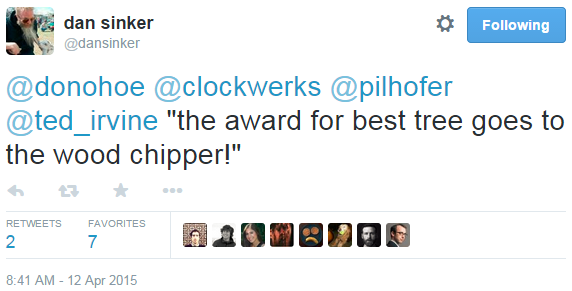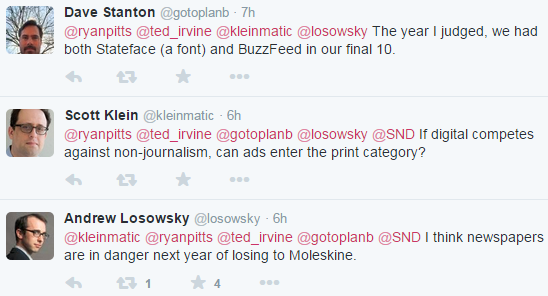Nate Silver of FiveThirtyEight dinged Vox for stealing content. Basically, the beef is that Vox reposts infographics from other websites, adding insult to injury by not linking back. Cue media kerfuffle on Twitter (my favorite regular internet occurrence). Ezra Klein, the ego behind Vox, responded with an imitation of an apology called “How Vox aggregates”. Twitchy rounded up some entertaining tweets, but didn’t include all of the best ones, possibly because they hadn’t been posted yet. Here are my favorites, starting with a pun from Jay Rosen:
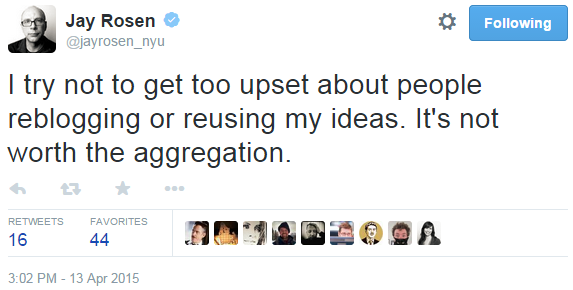
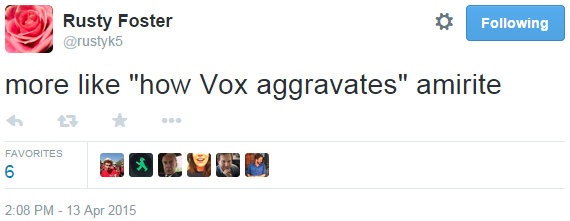
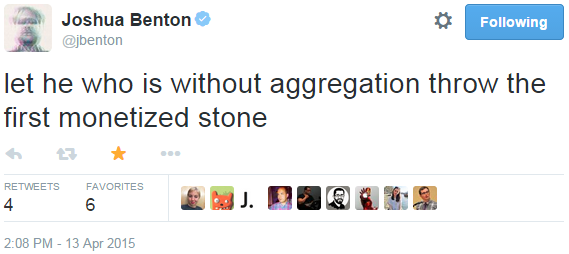
Adam Schweigert chimed in, “If you aggregate by posting things without attribution, it’s not on the person you stole from to complain, it’s on you to not be an asshole.” True. Schweigert also accused Vox of aggregating by “taking screenshots and not giving credit.”
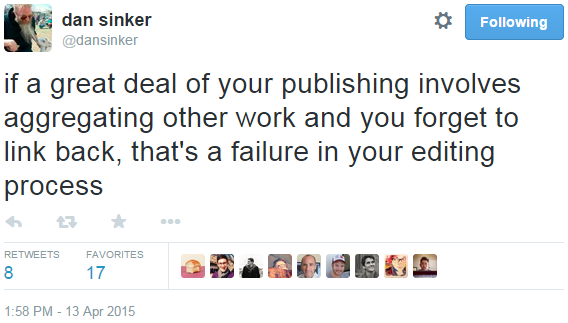
In response to Sinker, Brian Boyer said, “Fuck links back. Let’s talk about copyright.” That whole thread is interesting in its discussion of intellectual property and fair use, concepts that the internet has shaken up considerably. But hey, let’s get back to the jokes!
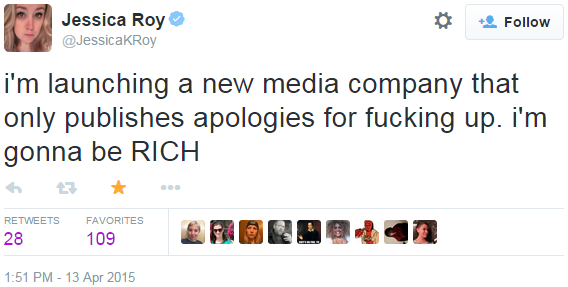
Roy followed up with, “we also delete the apologies and then apologize for deleting them”. (This was a reference to the BuzzFeed nonsense: 1, 2, 3, 4.) Anil Dash claimed that his publication had already “disrupted” her proposed business with a list of ridiculous apologies, to which Roy responded, “my company will aggregate this apology”. Near the end Dash quipped, “We were hacked! And our intern did it. Our intern has been fired, and our next hacking is scheduled for Thursday.”
Explaining Journo Twitter in-jokes is difficult, and everything is less funny out of the stream. Hmm. ONWARD!
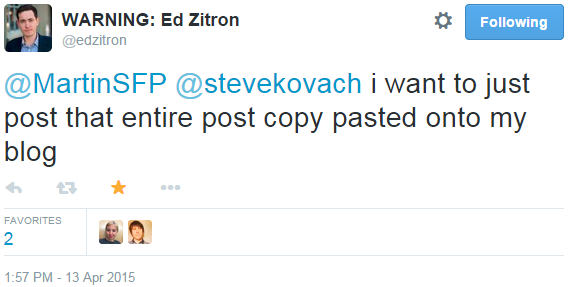
I was extremely tempted to go ahead and enact Zitron’s threat. But I settled for what I’m currently doing. [Update: I copy-pasted Klein’s post on Medium.]
Matt Boggie: “The strawmanning and equivocation in [Vox’s post] is astounding. Apologize, pledge to do better, and get on with it.”
Felix Salmon and others on the need to contribute something substantive.
Alan McLean: “It’s worth asking yourself why everyone else creating [graphics] thinks you’re stealing, but you don’t…”
Adam Steinbaugh, satirizing Vox: “An explainer on how those charts ended up on our website: it saves money.”
Derek Mead: “Pretty impressive when your defense of aggregation is ‘we totally like it when people share our videos!'”
That’s all the Twitter I combed through. Stay tuned for slightly longer #HotTakes.
UPDATE: Tom Gara being snarky:
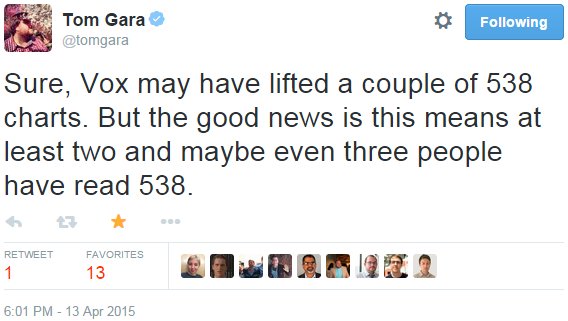
And this comment on Politico that made me snort:
“Well, what do you expect from those who bring you the spectacular irony of a publication that is named with the Latin word for ‘voice,’ but doesn’t allow comments?”
